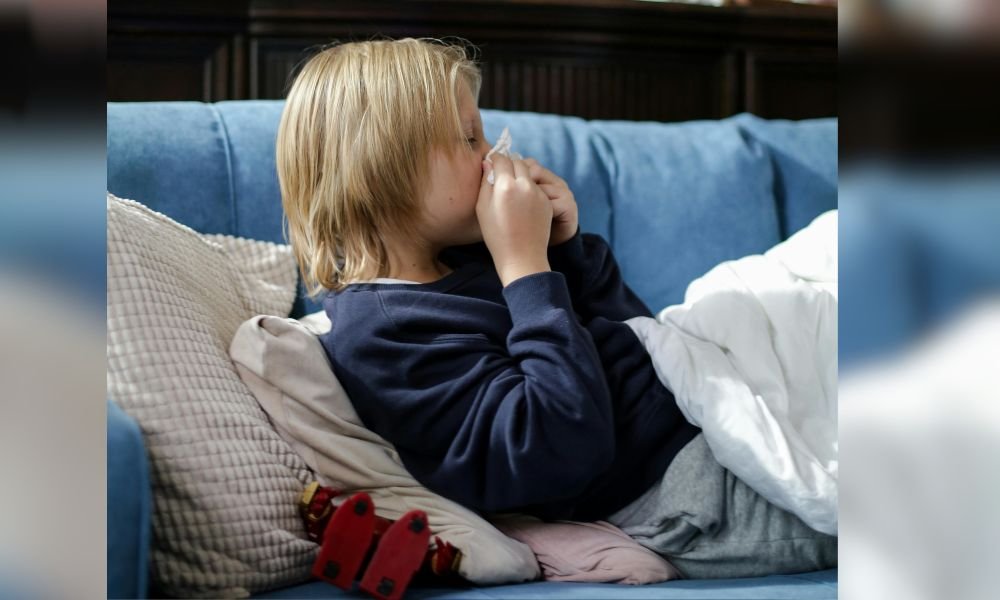As parents, safeguarding your child’s health is paramount. Dust allergies, a common issue in India due to high levels of dust and pollution, can significantly impact your child’s well-being. This guide aims to educate you on dust allergies, their symptoms, diagnosis, and effective strategies to mitigate their effects.
What is Dust Allergy?
Dust allergy is an allergic reaction caused by inhaling dust particles. These particles can include dust mites, pollen, mold spores, pet dander, and other microscopic organisms. When inhaled, they can trigger an immune response in sensitive individuals, leading to various allergic symptoms.
Who is More Prone to Dust Allergies?
Children are particularly susceptible to dust allergies due to their developing immune systems. Factors that increase the risk include:
- Family history of allergies or asthma.
- Living in urban areas with high pollution levels.
- Exposure to dust and allergens at home or school.
- Pre-existing respiratory conditions.
Symptoms of Dust Allergies
Children with dust allergies may exhibit the following symptoms:
- Sneezing and runny or stuffy nose.
- Itchy or watery eyes.
- Coughing, especially at night.
- Wheezing or shortness of breath.
- Skin rashes or eczema.
- Itchy throat or nose.
Is Dust Allergy Contagious?
Dust allergy is not contagious. It is an immune response to allergens and cannot be transmitted from one person to another.
Diagnosis of Dust Allergies
To diagnose dust allergies, a pediatrician may:
Conduct a Physical Examination:
Assess your child’s symptoms and medical history.
Allergy Testing:
- Skin Prick Test: Small amounts of allergens are introduced to the skin to observe reactions.
- Blood Test: Measures the level of IgE antibodies to specific allergens in the blood.
Environmental Assessment:
Evaluate potential allergen sources in your child’s environment.
Treatment and Management of Dust Allergies
Effective management of dust allergies involves a combination of environmental control, medication, and lifestyle adjustments:
Environmental Control:
- Regularly clean and vacuum your home using a vacuum cleaner with a HEPA filter.
- Use a damp mop to clean floors and reduce dust.
- Wash bedding, curtains, and soft toys in hot water weekly.
- Use allergen-proof covers for mattresses, pillows, and quilts.
- Maintain indoor humidity levels below 50% using dehumidifiers if necessary.
Medication:
- Antihistamines: Help relieve sneezing, runny nose, and itching.
- Nasal Corticosteroids: Reduce inflammation in the nasal passages.
- Decongestants: Provide short-term relief for a stuffy nose.
Always consult your pediatrician before administering any medication.
Lifestyle Adjustments:
- Encourage your child to wash their hands and face frequently, especially after playing outside.
- Shower and change clothes after outdoor activities to remove pollen and dust.
- Limit the use of carpets, heavy drapes, and upholstered furniture that can trap dust.
- Opt for washable rugs and blinds instead.
Air Purification:
- Use air purifiers with HEPA filters in your child’s bedroom and other commonly used areas.
- Ensure good ventilation by opening windows and using exhaust fans.
Conclusion
Managing dust allergies requires a proactive approach to minimize exposure and alleviate symptoms. By maintaining a clean home environment, controlling humidity, and ensuring regular medical check-ups, you can significantly improve your child’s quality of life. If you have any concerns or need personalized advice, don’t hesitate to consult with your pediatrician.
Your child’s health is our priority. Let’s work together to keep them healthy and happy!
For personalized advice and treatment options, please consult:
Dr. Kritika Agarwal, Pediatrician and Adolescent Specialist
Pinnacle Health Multispeciality Clinic
Hosa Road, Bangalore








